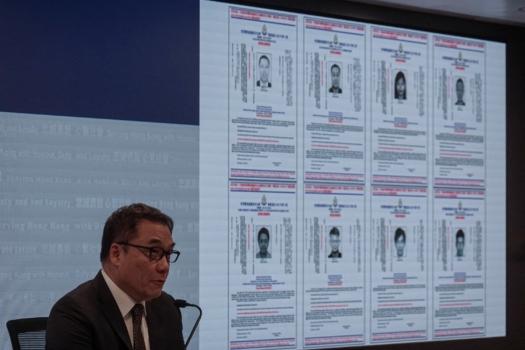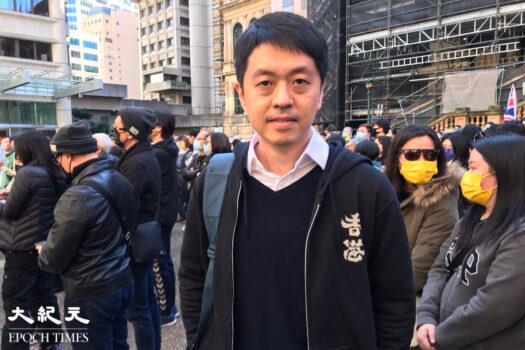Hong Kong police are offering $1 million (US$127,650) bounties for information on eight human rights dissidents currently residing in the United States, UK, and Australia.
On July 3, the National Security Department of the Hong Kong Police Force issued arrest warrants for the eight individuals, alleging they had contravened the National Security Law.
The eight individuals were accused of “endangering” Hong Kong’s national security—more specifically, the allegations of “incitement to secession, subversion, incitement to subversion, and collusion with a foreign country.”

A Hong Kong police spokesperson claimed the National Security Law granted authorities the power to pursue individuals located outside of the city.
Meanwhile, Steve Li (Li Kwai-wah), chief superintendent of the HK Police, vowed authorities would “not stop chasing” the dissidents.
“They have encouraged sanctions … to destroy Hong Kong and to intimidate officials,” he told reporters in comments obtained by Reuters.
While Hong Kong’s chief executive, John Lee, vowed to pursue the eight activists indefinitely.
“The only way to end their destiny of being an abscondee who will be pursued for life is to surrender,” he told reporters. “We’ll be pursuing the abscondees’ criminal responsibilities for life until they surrender themselves.”
Dissidents Respond
In response, Nathan Law said he was also “wanted” for other alleged contraventions of the National Security Law but accused authorities—now under the sway of the Chinese Communist Party—of bending the rule of law to suit their own purposes.“In civilized countries, the right to peaceful political advocacy should be protected. That’s what all the ‘wanted’ individuals do. I urge National Security Bureau to disclose any evidence of my alleged collusion with foreign forces,” he continued.
“I have not accepted any foreign govt funding, nor am I employed by any govt agencies. I don’t accept any commands or orders. If meeting foreign politicians, attending seminars, and hearings are ‘colluding with foreign forces,’ a lot of HK officials should be in legal trouble.”
Australian-based former HK politician, Ted Hui, said the latest bounty would have no impact on his situation or personal safety, given he was also subject to multiple warrants under the National Security Law.
“I think the bounty is ridiculous and hilarious,” he told The Epoch Times via email. “Free countries will not extradite us because of that. It only shows how powerless the CCP is in response to the HK diaspora who advocate for freedom and democracy.”

He said the latest move showed the CCP’s persecution of HK’s overseas diaspora was reaching new heights.
A ‘Dangerous Precedent’: US State Department
Leaders in the respective Western nations were quick to condemn the actions of HK authorities.“We call on the Hong Kong government to immediately withdraw this bounty, respect other countries’ sovereignty, and stop the international assertion of the National Security Law imposed by Beijing,” he added.
UK Calls Move Authoritarian, While Australia Says Hong Kong Needs Freedom
The UK’s Foreign Secretary James Cleverly called Beijing’s latest move “authoritarian.”“What I would say in relation to the events overnight, and I want to be very clear, Australia has a view about freedom of expression,” she said. “We have a view about people’s right to express their political views peacefully, and people in Australia who do so will be supported.”
Wong also took to social media to call on Beijing to uphold the rights and freedoms in Hong Kong.
Prime Minister Anthony Albanese called the bounties “unacceptable.”
“We are concerned about the announcements overnight that have been made,” he told Nine’s Today program on July 5.
“We will continue to cooperate with China where we can, but we will disagree where we must. And we do disagree over human rights issues.”
Meanwhile, the Inter-Parliamentary Alliance on China (IPAC) said it was a “dangerous escalation in Beijing’s war on global dissent.”
“These comments will exacerbate community tensions and are likely to precipitate unacceptable infringements of sovereignty,” the parliamentary group wrote on Twitter.
IPAC further urged Western governments to pledge strong substantive actions against any potential overreach by Beijing to apprehend dissidents living in their countries.
In this respect, Beijing does have form, with multiple accounts from overseas communities saying they face harassment and even kidnappings from overseas CCP-linked operatives to bring them back to China.





